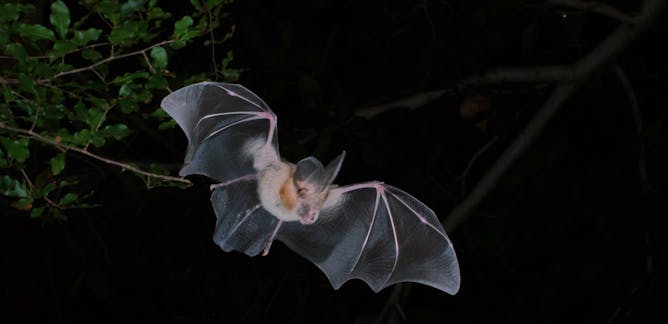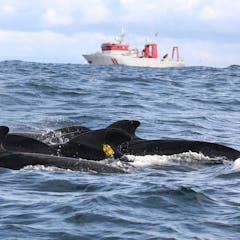
Articles on Zoology
Displaying 1 - 20 of 101 articles

The scarcity of bat fossils is more than a palaeontological puzzle: it has implications for bat conservation strategies today.

Learning about snakes offers unique insights into the natural world.

A strange worm found in the jungle, then harvested and preserved in… gin, provides a better understanding of the evolution and genetics of flatworms.

New research shows European lobsters are using the deposits of rocks and boulders at the base of wind turbines as shelter.

There’s no single reason many Asian animals spread to Australia but few went the other way – but climate, geography and the slow drift of tectonic plates all played a role.

The immortal jellyfish ‘Turritopsis dohrnii’ is capable of escaping death. The molecular keys involved in its longevity have been revealed by researchers at the University of Oviedo.

Birds are master navigators, negotiating journeys of thousands miles each year.

We compared 4,500 species of songbird to finally confirm what Darwin suspected.

Horses are the supreme athletes of the large mammal world – here’s a look at the reasons why they can run so fast and jump so high.

Whale species at higher risk of predation from killer whales are more adversely affected by the sound of sonar.

A proposed new large-scale octopus farm in Spain is a huge risk to the welfare of this sentient and intelligent animal.

Macaque tooth wear was identical to our ancestors, throwing into question the long held belief that tool use caused the markings on hominin tooth fossils.

Insects such as ants and beetles use ingenious processes in their brains to work out how far they’ve travelled and in what direction - we’ve now discovered how they remember their way home.

We showed for the first time that social disruption and trauma - such as culling of older elephants - has a lasting impact on the behaviour of African elephants.

Cats are in charge – but living with one can be one of life’s greatest joys. Here’s some guidance on choosing the right feline for you.

Badgers are shy and nocturnal animals. It’s time to challenge false perceptions and end the cruelty towards this iconic mammal.

How Rekambo chimpanzees demonstrate a number of ground breaking behaviours never seen before in animals.

Why social interaction isn’t always a good thing for primates, especially for individuals with a fever.

Polar bears are being forced to adapt their feeding habits due to climate change – so reports of summer scavenging, foraging and terrestrial hunting are unsurprising.

Orangutan mothers use a range of techniques to teach their offspring up the age of five - but their tolerance for sharing their food only lasts so long.
